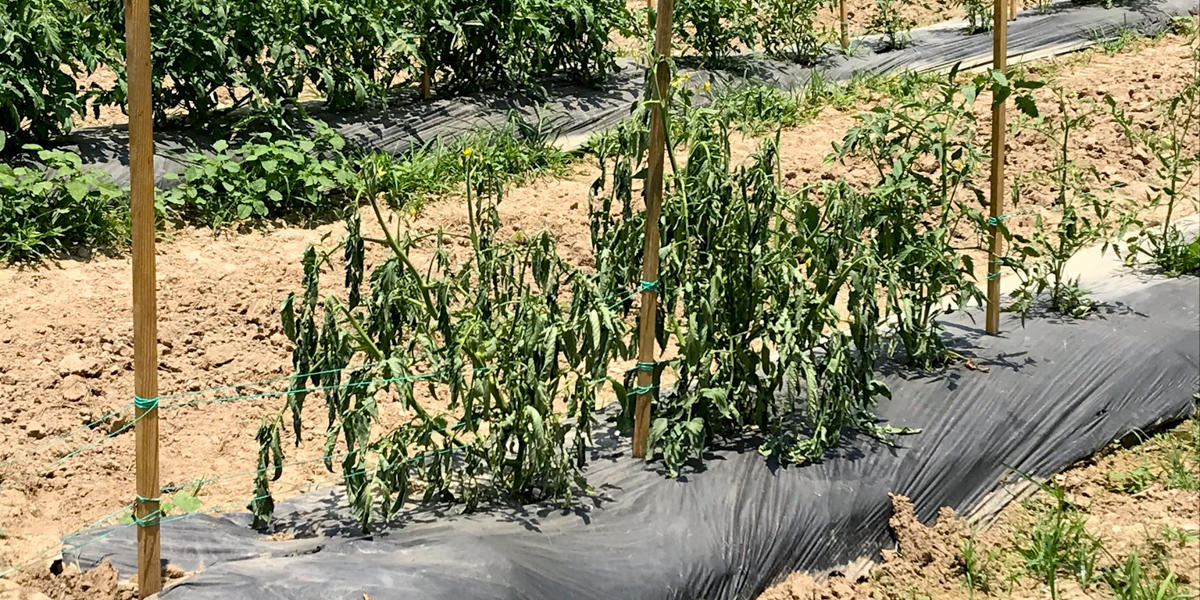
Wilted tomato plants affected by Ralstonia solanacearum race 3 biovar 2.
Image credit: Rebecca A. Melanson, Mississippi State University Extension, Bugwood.org, CC BY-NC 3.0 US DEED. Cropped for use.
Background
Ralstonia solanacearum race 3 biovar 2 strain (R3bv2) is a high-risk pathogen that poses a threat to the production of solanaceous crops such as potatoes, tomatoes, peppers, eggplant, weedy nightshades, and ornamental plants. R. solanacearum persists in the soil and irrigation waters for a long period of time. It is also known for latent infections and attends high populations in the reservoir plants, also known as alternate hosts, particularly the ones from the solanaceous family.
Minnesota is among the top 10 states leading potato production in the US. There is an established pathway of introducing R3bv2 through geranium import, therefore potatoes growing in the northern regions are likely to be infested. Weeds such as nightshades are often found growing near and within the potato fields, and around the irrigation water areas. Some of these weeds are alternate hosts of R3bv2 and can serve as reservoirs of R3bv2 that can significantly increase the likelihood of infesting the potato fields.
Research questions
- What solanaceous weed species serve as alternate hosts to R3bv2?
- Are the hosts symptomatic, have latent infections, or both?
- What is the interaction of R3bv2 with potential alternate hosts?
- Under what conditions do symptoms develop?
Practical implications
This work will help with the management of potato brown rot/bacterial wilt by knowing conditions that favor colonization of the alternate plants and guide the detection of the pathogen in alternate hosts, soil, and irrigation water when the concerned agencies need to track the spread of the pathogen.
Outcomes
This project began in January 2024 and is in progress for the next several years. Please check back at a later time for updates.
To stay connected, sign up for the MITPPC newsletter and follow us on Facebook and LinkedIn.